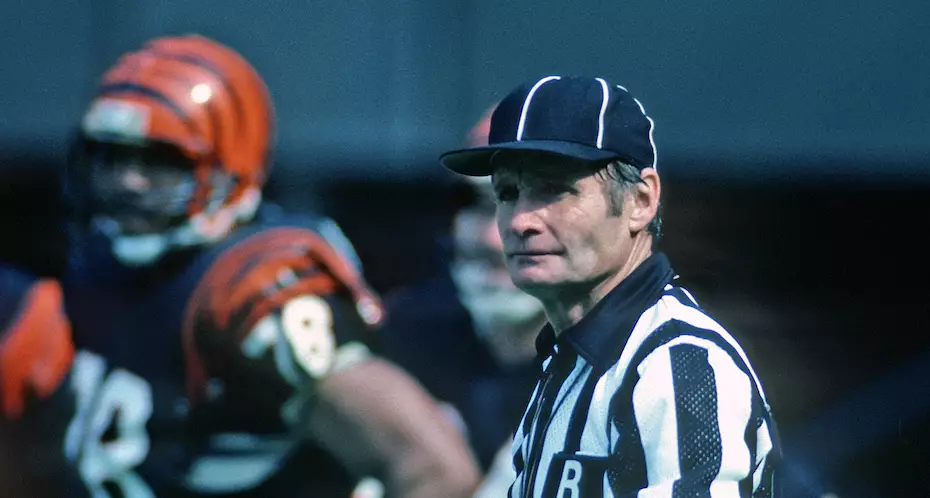The departure of Jim Tunney marks a poignant moment in the world of professional football officiating. At the ripe age of 95, Tunney passed away peacefully at his home in Pebble Beach, leaving behind a legacy steeped in memorable moments and exemplary service over an illustrious 31-year career. He stepped onto the field for the first time as a field judge in 1960, embarking on a journey that would see him officiate some of the most iconic games in the NFL’s history, earning the moniker of “the dean of NFL referees.”
Tunney’s career aligns with several landmark events that defined American football. He officiated games that became legends themselves, dubbed “The Ice Bowl,” “The Catch,” and “The Fog Bowl.” The Ice Bowl, a chilling encounter held in 1967, showcased the fierce competitiveness between the Dallas Cowboys and Green Bay Packers amid frigid conditions. Similarly, The Catch, featuring a spectacular play from Dwight Clark during the 1981 NFC Championship, is etched in the minds of fans, further demonstrating Tunney’s role in officiating significant moments. The Fog Bowl in 1988 presented its own challenges, with dense fog obscuring visibility, but Tunney’s seasoned judgment kept the game fair.
Jim Tunney’s era coincided with the explosive growth of the NFL’s television presence, marking a transformative phase for the sport. As the first referee to fully engage with television broadcasting, Tunney adeptly navigated this new landscape by bringing clarity and understanding to fans watching from home. According to former referee Gene Steratore, Tunney had a unique way of projecting authority and engagement, effectively bridging the gap between the game’s complexities and the at-home viewer. His contributions helped demystify officiating practices and fostered greater appreciation among fans.
Beyond his role in football, Jim Tunney’s influence reached into schools as well. Many knew him as Principal Tunney, guiding students at Fairfax High School while balancing the rigors of officiating at the NFL level on weekends. This dual career showcases Tunney’s dedication, as he routinely flew out after Friday classes to officiate games across the country. His commitment to both education and sports reflects a profound sense of responsibility and passion for impacting the young lives he guided.
In recent discussions, Tunney expressed concerns regarding the current state of NFL officiating. Having witnessed immense changes over the decades, he noted a deficiency in experienced trainers for the upcoming generation of referees. His call for more seasoned mentorship emphasized the importance of continuity and expertise in maintaining the integrity of officiating, which he so ardently championed throughout his career.
As we reflect on Jim Tunney’s remarkable life, it is clear that his contributions extended far beyond the field. His ingenuity and professionalism in officiating left an indelible mark on the sport and the culture surrounding it. Even in his passing, his spirit continues to resonate, reminding us of the pivotal role that referees play in shaping the history and experience of American football.

